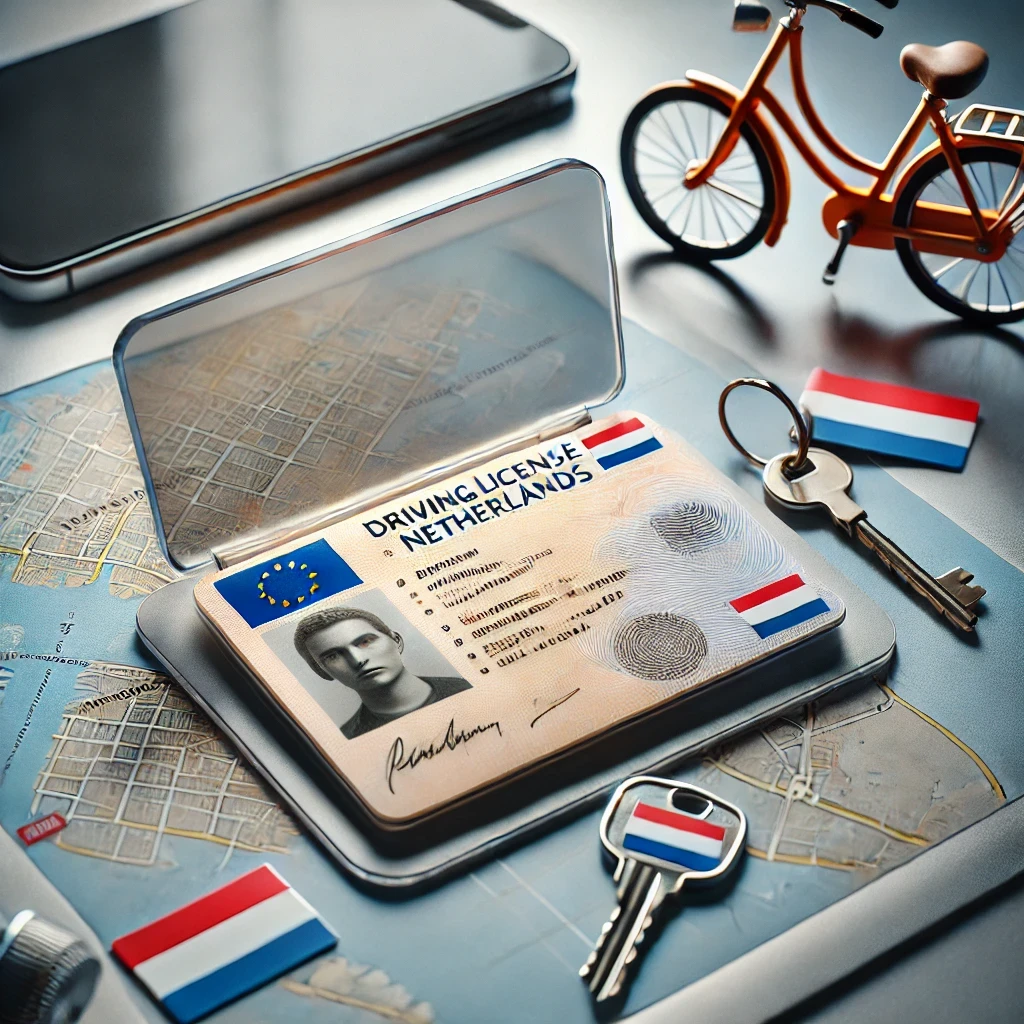Getting a driving license in the Netherlands might seem like a complicated process, but once you get the hang of it, it’s quite manageable. Whether you're a new driver or an expat looking to exchange your foreign license, understanding how to navigate the system is key. In this guide, we’ll cover everything from taking lessons to handling different types of foreign licenses.
Driving license in the Netherlands
The driving license in the Netherlands is regulated by the Dutch government and follows a set of strict rules. The license categories range from standard car licenses (category B) to motorcycle (A) and commercial vehicle licenses. In the Netherlands, the driving license is mandatory to legally operate a vehicle, and you can’t skip any steps if you want to get on the road!
For Dutch citizens and residents, the process involves taking both a theory exam and a practical driving test. Once you pass these, you’ll earn your driver’s license. If you’re a new driver, you’ll have a "beginner's" license for the first five years.
Driving lessons
Getting a driving license in the Netherlands starts with driving lessons. You’ll need to sign up with a driving school. There are tons of options across the country, with prices varying widely. It’s essential to choose a reputable school since the quality of lessons will significantly affect your chances of passing the practical exam.
On average, a student driver takes around 39 lessons to be well-prepared for their practical test. Costs vary, but typically, each hour-long lesson ranges from €40 to €60. Some schools also offer packages, combining lessons and the driving exam fees.
Theory exam
Before you can take your practical exam, you have to pass the theory exam. This is often the first major hurdle for many people, but with a bit of preparation, it’s entirely doable. The exam is conducted by the CBR, the official body responsible for issuing driving licenses in the Netherlands.
The theory exam tests your knowledge of traffic laws, road signs, and safe driving practices. You can take the theory exam in multiple languages, including English, which makes it more accessible for non-Dutch speakers. You need to score at least 41 out of 50 to pass the exam.
Practical exam
The practical exam is the final step in getting your driving license. During this test, you'll demonstrate your driving skills in real traffic conditions. The practical exam typically lasts around 55 minutes, and you'll be evaluated on how well you can apply the rules you've learned and how safely you can handle the car.
If you’ve passed the theory and completed enough lessons to feel confident, your driving school will schedule your exam with the CBR. Some schools offer mock exams that simulate the real thing, which can be a great way to get rid of those last-minute nerves.
Using a foreign driving license in the Netherlands
If you have a foreign driving license, you might be wondering if you can legally drive in the Netherlands. The rules depend largely on where your license was issued. The Dutch government differentiates between EU/EEA licenses and non-EU/EEA licenses.
EU/EEA driving licenses
If you hold a valid driving license issued in an EU/EEA country, you’re in luck. The Netherlands recognizes these licenses, so you can drive with them as long as they are valid. You don’t need to exchange them immediately, and you can keep using them until they expire. However, it’s often a good idea to exchange it for a Dutch one if you plan on staying long-term, as this could simplify things like insurance or identification.
Non-EU/EEA driving licenses
If your license was issued outside the EU or EEA, things can get a bit more complicated. Generally, you can use a non-EU/EEA license for up to 185 days after registering as a resident. After that, you’ll need to exchange your license or take a Dutch driving exam. This is where it becomes crucial to understand the conditions and special agreements.
Exchanging your foreign driving license in the Netherlands
The exchange process depends on whether your license is from an EU/EEA country or a non-EU/EEA country. For many countries, especially those with bilateral agreements with the Netherlands, the process is straightforward. The cost for exchanging a license varies, but it typically ranges around €30 to €40.
To exchange your license, you’ll need to submit an application through the RDW, the national road authority in the Netherlands. They’ll check whether your license is eligible for exchange and if it’s still valid. Keep in mind, you may also need to get a medical check-up depending on your age or the type of vehicle you plan to drive.
Conditions for exchanging a foreign license
There are specific conditions you need to meet to exchange your foreign license. For instance, you must have been a resident in the country where the license was issued for at least 185 days in the year you obtained it. You also need to prove you’ve been living in the Netherlands legally. If your license is in a non-Latin alphabet, you might need a certified translation or an international driving permit.
If you’re exchanging a non-EU/EEA license, you may be required to take either the driving school exams or the theory and practical exams. This depends on the country of origin and your driving history.
Special license exchange agreements
The Netherlands has special exchange agreements with several countries, making it easier for expats to trade their foreign license for a Dutch one. For example, if you’re from countries like Japan, South Korea, or Canada, you might be eligible for an expedited exchange process without needing to take the theory or practical exams.
However, if you’re from a country without such agreements, you’ll need to go through the standard route of taking the drivers license exam in the Netherlands. This involves passing both the theory exam and practical exam, just like any new driver.
Want to get your driver's license? Check out our free trial lessons, packages and crash courses.

